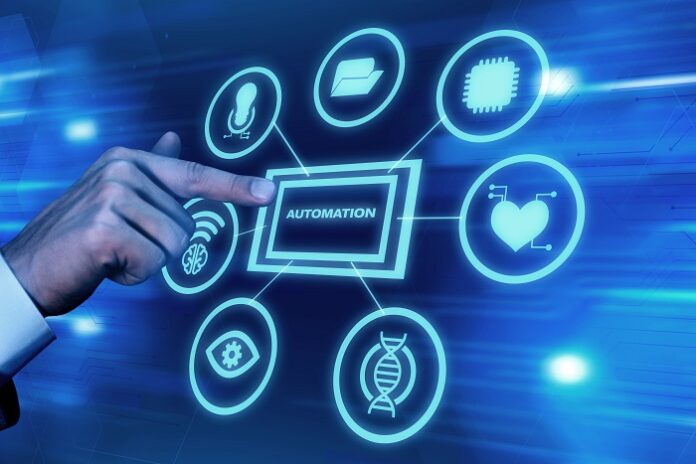The shift from manual processes to automated systems marks a significant evolution in how we interact with services daily. Automation transcends the boundaries of traditional industry applications, permeating every aspect of our lives—from how we shop and bank to how we manage our health and homes. This transformation offers increased efficiency and a promise of greater convenience, reshaping our expectations and experiences.
As we explore the journey of automation in various sectors, we will uncover both the enhancements it brings and the challenges it presents, ensuring a rounded perspective on its pervasive impact.
The Evolution Of Automation In Daily Services
Tracing the history of automation reveals a series of incremental changes that have had a profound impact. When looking to appreciate the depth of this transformation, one should consider the advancements in technology that replaced manual cash registers with sophisticated point-of-sale systems in retail or transformed traditional banking with online and mobile banking platforms. Businesses aiming to keep pace with these changes should continually upgrade their technological infrastructure and train their staff to manage these new tools effectively.
Enhancing Everyday Convenience
Automation’s primary appeal lies in its ability to make everyday tasks more convenient. Take, for example, the way e-commerce platforms use automated systems to recommend products based on browsing history, significantly speeding up the shopping process and enhancing the user experience. One way to replicate this effect is for businesses to implement customer relationship management (CRM) systems that leverage data to tailor services to individual preferences, thereby not only meeting but anticipating customer needs.
Automation In The Retail Sector
Retail businesses can maximise the benefits of automation by integrating sophisticated POS systems that handle transactions, manage loyalty programs, and provide comprehensive sales analytics. This integration streamlines operations and offers valuable insights into consumer behaviour, allowing businesses to fine-tune their marketing strategies.
For optimal results, training employees thoroughly on these systems is advisable, ensuring they can troubleshoot issues and provide seamless customer service. Additionally, adopting mobile POS solutions can enhance the shopping experience by enabling transactions anywhere within the store, reducing wait times and elevating customer satisfaction.
Revolutionizing Healthcare With Automation
Automation has transformed healthcare delivery by introducing more streamlined, error-free operations. Automated scheduling systems improve appointment management, reducing wait times and administrative overhead. For healthcare providers looking to adopt these systems, it is vital to choose software that complies with medical privacy laws and is capable of integrating seamlessly with existing health records systems.
Additionally, automated diagnostic tools can provide faster, more accurate assessments, aiding in better patient outcomes. To fully leverage these tools, healthcare facilities should invest in regular training for their staff to ensure they are adept at using new technologies and are able to provide informed patient support.
Impact On Efficiency And Accessibility
Automation enhances efficiency and accessibility across multiple sectors by reducing the time and manpower needed for various processes. Automated customer service platforms, for instance, can handle a large volume of queries without human intervention, ensuring that customers receive timely responses. To implement these systems effectively, companies should focus on customising the automation to address frequently asked questions accurately and escalate more complex issues to human operators.
Furthermore, enhancing accessibility can be achieved by incorporating voice-activated technology in customer service, allowing individuals with different abilities to access services easily. Training customer service teams to manage these automated interactions ensures that the technology complements rather than replaces the human element.
Automation In Home And Community Services
Automation extends its reach into our homes and communities, dramatically altering how we interact with our living and communal environments. Smart home technologies, for example, allow for the automation of heating, lighting, and security systems, which can be controlled remotely via smartphones. For homeowners and property managers looking to integrate these technologies, it is important to select systems that are interoperable, ensuring they can communicate and work seamlessly together.
Along with this, automated community services like public transportation information systems improve accessibility and convenience for residents, providing real-time updates and schedule adjustments. Local governments and community managers should consider partnering with technology providers that can offer scalable solutions tailored to the community’s specific needs and budget constraints.
The Integration Of Automation In Laundry Services
The niche market of laundry services has also seen a significant shift towards automation, particularly in the form of laundry POS systems that streamline operations from payment to service tracking. These systems facilitate smoother transaction processes and enable laundry business owners to manage customer information and preferences, leading to enhanced service personalisation.
For those in the laundry service industry, implementing a robust POS system can provide a competitive edge by offering customers convenience, such as mobile app integration for service requests and status updates. It’s crucial for businesses to choose POS systems that are user-friendly and provide reliable after-sales support to minimise disruptions in service.
Challenges And Reservations
Despite its many benefits, the shift towards automation is not without its challenges and reservations. Concerns about job displacement are prevalent as machines replace tasks traditionally performed by humans. Businesses and policymakers must address these concerns by fostering an environment prioritising re-skilling and education, ensuring the workforce can thrive in a more automated future.
Additionally, there are privacy issues to consider, especially with data-intensive automated systems. Companies must build robust data protection measures into their automated processes and be transparent with customers about data usage, maintaining trust and compliance with regulations.
The Role Of Artificial Intelligence
Artificial intelligence (AI) serves as the backbone for more sophisticated automation across various sectors. In retail, AI-driven analytics can predict purchasing trends and optimise inventory management. Companies keen on leveraging AI should focus on data quality and relevant algorithms that can drive meaningful insights for business operations.
Moreover, in customer service, AI chatbots can resolve common inquiries efficiently, allowing human agents to handle more complex customer needs. Businesses need to maintain an equilibrium where AI complements human skills, ensuring that technology enhances service quality without diminishing the customer experience.
Future Trends And Innovations
As we look to the future, the trajectory of automation in daily services points towards even more innovative applications that could further transform our everyday experiences. One of the most anticipated developments is the integration of drone technology for delivery services, which could revolutionize how goods are transported, offering faster and potentially more environmentally friendly options.
Businesses interested in staying ahead should monitor these trends closely and consider investing in pilot projects to test new technologies under real-world conditions. Furthermore, AI-driven health diagnostics and personalised medicine are on the rise, promising to make healthcare more precise and tailored to individual needs. Healthcare providers should explore partnerships with tech innovators to harness these advancements, ensuring they remain at the forefront of medical technology.
Adapting To Automated Futures
As we embrace a world increasingly influenced by automation, individuals and businesses alike must adapt and integrate these new technologies into their daily operations and lifestyles. This adaptation ensures competitiveness in a rapidly evolving market and enhances the quality of life by reducing mundane tasks and allowing more time for creative and strategic pursuits.
Making the most of these opportunities by staying informed about technological advancements and engaging with experts and communities that focus on automation and technology integration is crucial. Whether you are a business leader, a service provider, or a consumer, taking proactive steps towards understanding and implementing automation can lead to significant benefits and opportunities for growth.





